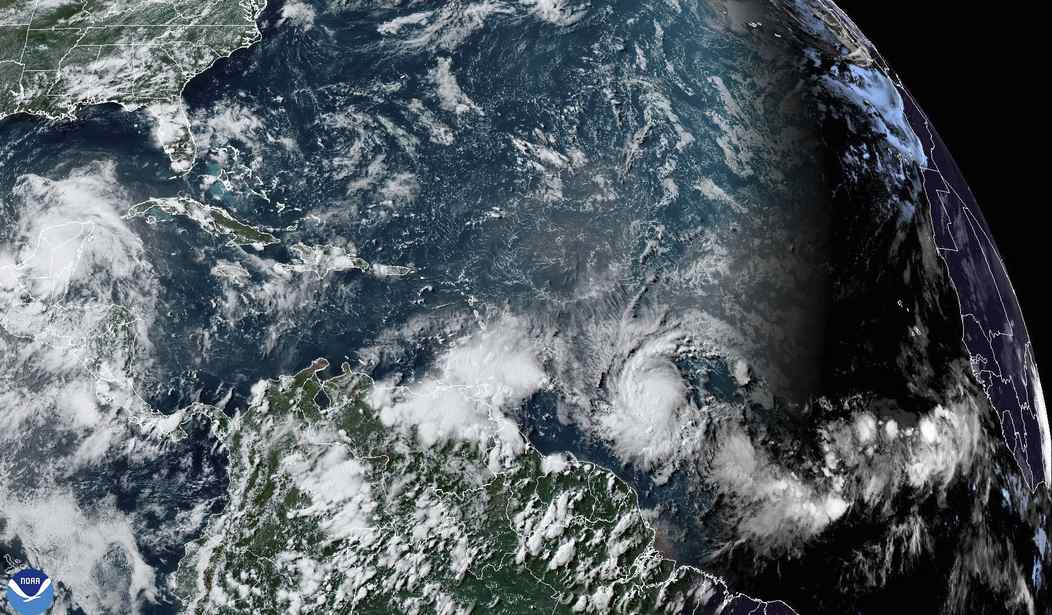The ocean is big. Really big. It's hard for us humans to fathom (yes, that was intentional) the size of the world's seas, which the great science fiction writer Robert Heinlein described with the phrase "the ungrokkable vastness of ocean." The planet, in general, is so huge, and the forces that govern its climate are so chaotic as to make our efforts seem pretty puny in comparison.
That doesn't mean we don't have some effect. But any efforts we make should be tempered by reason - and by a careful cost/benefit analysis. That doesn't appear to have been done in some cases, including one recent proposal wherein oceanographers from the Woods Hole Institute on Cape Code are proposing to dump 6,600 gallons of sodium hydroxide - lye - into the ocean, to combat climate change.
Scientists from the Woods Hole Oceanographic Institution are seeking a federal permit to experiment in the waters off Cape Cod and see if tweaking the ocean’s chemistry could help slow climate change.
If the project moves forward, it will likely be the first ocean field test of this technology in the U.S. But the plan faces resistance from both environmentalists and the commercial fishing industry.
The scientists want to disperse 6,600 gallons of sodium hydroxide — a strong base — into the ocean about 10 miles south of Martha’s Vineyard. The process, called ocean alkalinity enhancement or OAE, should temporarily increase that patch of water’s ability to absorb carbon dioxide from the air. This first phase of the project, targeted for early fall, will test chemical changes to the seawater, diffusion of the chemical and effects on the ecosystem.
If successful, the team plans to conduct a larger trial next year in the Gulf of Maine.
Just for the record, the Atlantic Ocean contains 82 billion billion gallons of water. That's a lot of water. (And yes, gallons. I use freedom measurements.) The world's oceans combined contain 97 percent of the water on the planet, amounting to 352,670,000,000,000,000,000 gallons. Even if this experiment were to yield some measurable results, what do these researchers propose to do next? There isn't enough lye on the planet to be able to do this on a global scale.
And the researchers seem to have not only failed to think of that, they appear to have also not considered the cost of producing and transporting that much lye.
"To have any impact on climate change, you would have to deploy this geoengineering technology at a truly massive global scale," said Benjamin Day, a senior campaigner with the environmental nonprofit Friends of the Earth. And because mining and shipping the alkaline materials would use so much energy, he said, even a massive deployment "would have a relatively minor impact in offsetting human emissions."
To make a long story short: They didn't think this thing through. That seems to be a common problem for people proposing these sorts of things.
See Related: Peer-Reviewed Research Debunks Economy-Destroying Climate Change Claims
The Hottest June in American History? No, It's Not 2024 - It Was 1933
There are a couple of other problems with this proposal.
First, this is unlikely to have any measurable effect. Their intended experiment is probably unable to make any measurable difference; it's too limited in scale. The amount of lye it would take to reproduce this on a global scale would be, well, global. It's impossible. It can't be done. And even if it could, who would pay for it?
Second, unintended consequences. Maine has, among other seafaring traditions, a considerable lobstering trade and tradition. It's unclear what dumping lye into the oceans would do to the lobstering trade or the fisheries; messing about with the pH balance of a considerable amount of water would likely have long-ranging consequences. What effect would it have, for instance, on plankton, which is the very base of the oceanic trophic levels? Kill or damage the plankton, and you could be looking at a catastrophic collapse of oceanic ecosystems.
This won't work. It can't work. It can't even be attempted. It's a solution desperately seeking a problem, and it's hard to understand what the Woods Hole people are even trying to accomplish by proposing this. These aren't stupid people. They have to understand the problem of scale. If there is anyone who should understand the almost inconceivable vastness of this planet's oceans, you would think it would be oceanographers. And, one would think, they would have some idea of how vast and chaotic the planet's climate systems are, as well, as the oceans are a major input into those systems.
A problem looking for a solution, yes, and very likely a group of researchers looking for notoriety - and maybe a grant.















